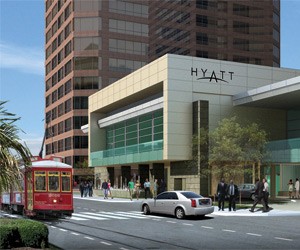Two years ago, many corporate executives wouldn't have dreamed of stepping foot inside a luxury resort. Today, the landscape looks vastly different, as fading perception issues, an improved economy and a lack of new supply are turning the tide for upscale resort properties.
"It's been a wild rollercoaster," says hospitality industry analyst Jan Freitag, vice president of global development for STR Global in Hendersonville, Tenn. "While the global and U.S. economy had its meltdown, the upper end of the market was hit disproportionally hard and went way down. But now it is way up again."
The numbers tell the story. According to Freitag, occupancy rates at luxury resort hotels dropped 8 percent in 2009 from 2008, but then increased 6.9 percent in 2010 from 2009 levels.
Although meetings may be coming back to five-star properties, rates are still hovering around mid-recession levels. Freitag says rates declined by a whopping 16.5 percent in 2009 over 2008. Although things are starting to stabilize, Freitag reports only a 1.9 percent increase in rates in 2010 over 2009, which means hotels have a long way to go.
"We have to fight against the rate decrease of 16.5 percent—it is going to take a while," he says.
According to Freitag, room rates at luxury resort properties will increase 7.5 percent in 2011, then increase by another 11.5 percent in next year. Part of the reason behind the projected rate growth is a lack of new supply, he says, noting that luxury resort hotels are extremely expensive to build, usually taking about five years from planning to opening.
"Very little development is going to happen in the next two years," he says.
"So right now, the luxury resort industry is firing on all cylinders. They just need to make up a lot of rates. People should check them out right now because prices are just going to go up."
Perception Fading
Fading perception issues are also at the root of the rebounding occupancy levels at upscale resort hotels.
"The AIG Effect has drawn its last breath and is now dead," says Kelly Wood, vice president of global sales organization-North America for The Ritz-Carlton Hotel Company. "People are more comfortable these days. [Since 2008,] there has been so much information and education from the hospitality industry out to the public with regard to the power of incentive programs, that we are seeing an uptick in business now."
Scott Douglas, director of Motum LLC, a marketing consulting firm, recently choose a Four Seasons hotel for the site of a meeting.
"Some eyebrows were raised at that choice, but once we were there, no one doubted that we made the right choice," he says. "I really feel that within the past eight months, the perception of over-spending has changed. For our clients, we are willing to entertain luxury resort properties when it makes sense, even if the rates are a little higher.
"It isn't just about rates, it is about providing that unique and memorable experience," he continues. "Plus, for an extra $1,500 per night, the experience and intangible service makes a huge difference."
Perception issues are still a concern for planners such as Marilyn Froggatt, vice president of sales for JNR Incorporated, a meeting planning company in Irvine, Calif., who says the term 'luxury' needs to be reexamined in the industry.
"In the past, 'luxury' had a positive connotation," she says. "But after the AIG effect, it became a political word."
Even so, Froggatt says she never stopped looking at high-end properties and is happy to see an uptick of interest in such venues of late.
"I'd say that just now things are beginning to resurge," she notes. "We started receiving RFPs in October 2010. Things that had been on hold for three years are getting going again. Confidence is returning."
Current Trends
While they are making a comeback, resort meetings in the post-recession era are emerging in an altered state.
"Meetings look a lot different than they did back in 2007," says Barry Brown, director of sales and marketing for Hotel del Coronado, a resort property in Coronado, Calif. "There is a lot more work and a lot less play."
Ritz-Carlton's Wood agrees, adding that many luxury-bound meetings are interested in incorporating a CSR component.
"If you are going to do a team-building activity, you are making it meaningful," she says. "There is still golf and spa, but many organizations are looking for an alternative—anything from planting grass in sand dunes to helping improve the well-being of children."
Katie Morell is a Chicago-based freelance writer and former Meetings Focus editor.






